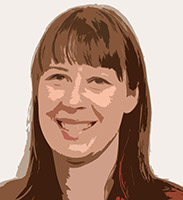3 ways the UK asylum system fails people living with HIV

In a special blog for Refugee Week, we reflect on how UK asylum policy has shaped – and sometimes undermined – our ability to tackle HIV as a society.
Three ways the UK asylum system fails people living with HIV
A significant number of asylum seekers and refugees in the UK are living with HIV. This reflects the unequal global impact of HIV– especially in sub-Saharan Africa, which carries 69% of the global burden of HIV.
1. Enforced destitution
People living with HIV in the UK are more likely to be living in poverty. But as asylum seekers are banned from working for 12 months and are reliant on asylum support (£36.95 a week for a single person - half the rate Jobseekers Allowance) they often experience the worst destitution.
Living in poverty makes people ill, whether or not they already have an immune-compromising condition. The efforts of NHS clinicians can be undermined by the simple reality of not being able to afford enough nutritious food to ensure HIV medication is effective, or having to prioritise buying infant formula (to prevent mother-to-child transmission of HIV) over the bus fare to hospital. This enforced destitution makes it extremely difficult for asylum seekers with HIV to stay well.
Find out more:
- NAT report on Poverty and HIV
- Still Human Still Here, the campaign to end destitution amongst asylum seekers (NAT is a proud member)
2. Dispersal
The housing asylum seekers are given by the Home Office is frequently inadequate and is often only available in a part of country some distance from where they are currently living. This ‘dispersal’ can be really disruptive to healthcare - continuity of care and the doctor-patient relationship is crucial to good treatment outcomes.
NAT has worked for several years to develop and encourage implementation of better guidance on managing this transition – but it can be an uphill battle.
In addition, asylum accommodation offers opportunities for HIV testing and treatment access which are being missed. We are also now starting to look again at Initial Accommodation Centres (IAC), the short-term housing which asylum seekers are put in before they’d dispersed. Research has shown there are real opportunities for IACs to encourage HIV testing for newly-arrived asylum seekers. A pilot study in a single IAC found that 87% of asylum seekers from high-prevalence countries were happy to take a test when offered, and that 7% of those tested were HIV positive – by any standards, these are extremely high rates of testing acceptability and HIV detection.
Find out more:
- NAT and BHIVA’s guide to the dispersal process for asylum seekers living with HIV
- Home Office Guidance on healthcare and pregnancy in the dispersal process
- HIV Testing in an Asylum Seeker Induction Centre – M Sidebottom and E Street – abstract to BHIVA Conference 2014.
3. Detention and removal
Asylum seekers with HIV who are taken into immigration removal centres (IRCs) frequently become more ill as a direct result of being in detention. This is simply unacceptable. By taking away the liberty of detainees, we take on an absolute duty to meet their health and wellbeing needs. Instead, NAT continues to hear about detainees who are not provided transport to see their HIV doctor, or have their treatment interrupted.
We also must remember that in 40% of cases the detainee living with HIV was not removed or transferred – they simply returned to the community. This is also a risky time for continuity of healthcare, as from what we have seen the IRC is even less likely to properly prepare the individual or their doctor for release. They may be lost to follow-up with their clinic and are likely to be more fearful in future about engaging with public services.
Find out more:
- NAT survey of HIV care in IRCS
- NAT and BHIVA best practice advice on detention, removal and people living with HIV.
The way we treat asylum seekers and refugees is affecting their ability to look after their health. It is compromising their right to healthcare. It is compromising their human rights. Compromised access to HIV prevention, testing, treatment and care also has an effect on our public health.
This is why asylum and refugee policy has been a major focus for NAT over the past decade and why we will continue to fight for all refugees' and migrants' rights to health while in the UK.


